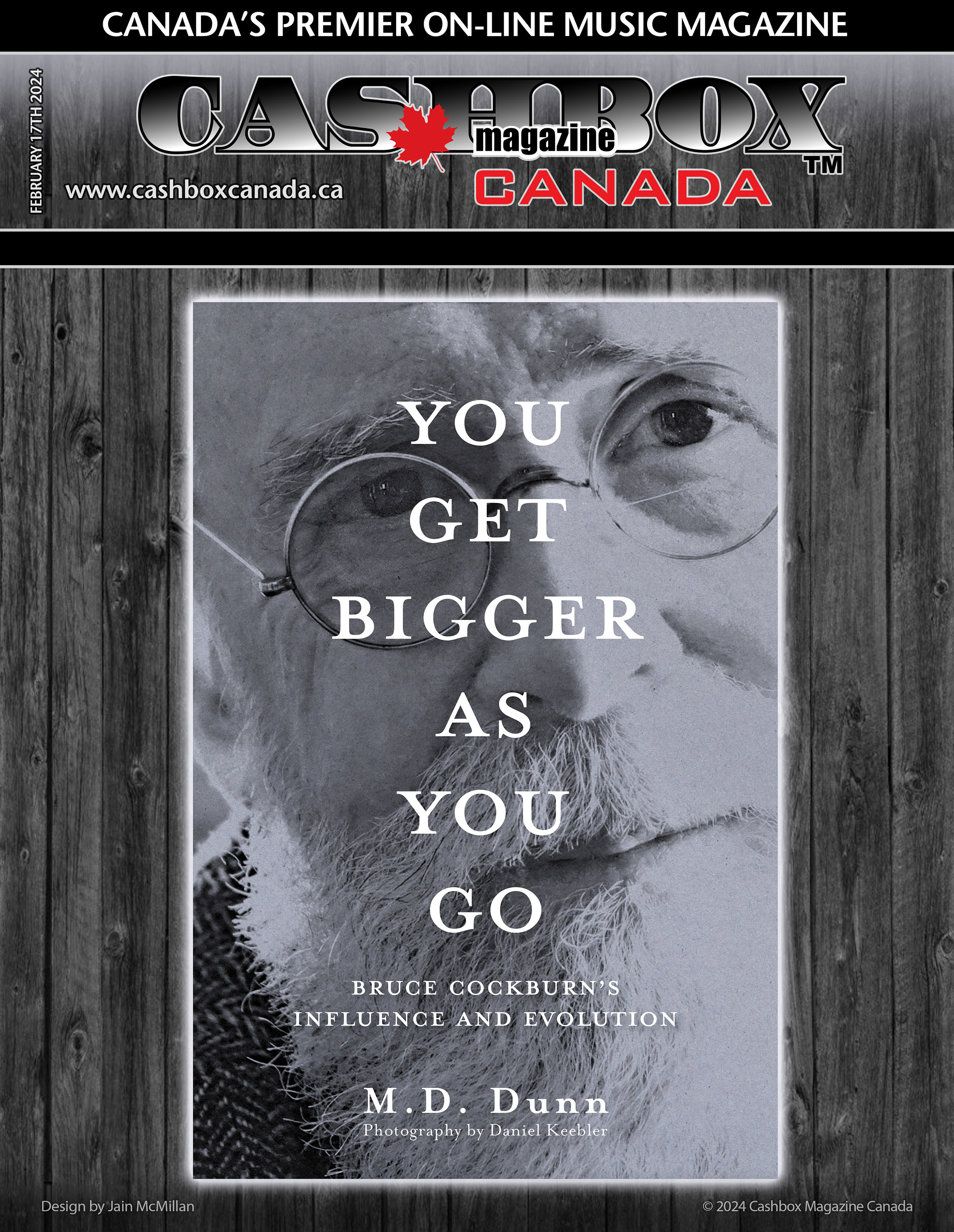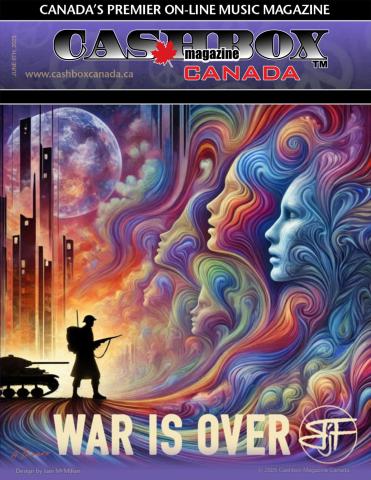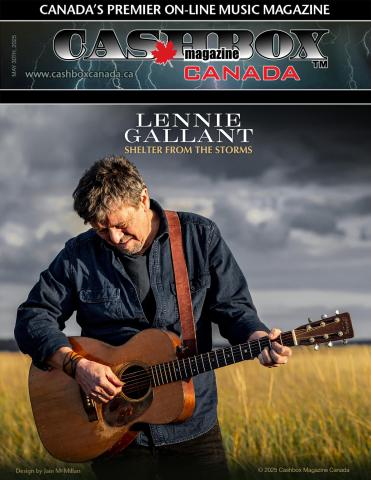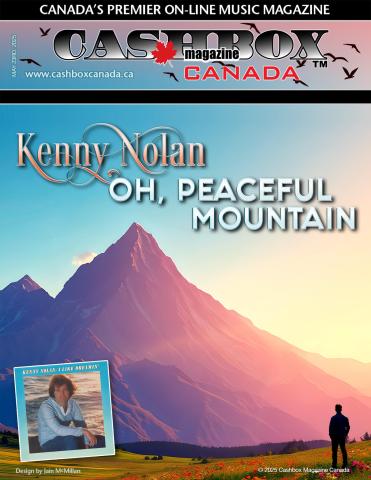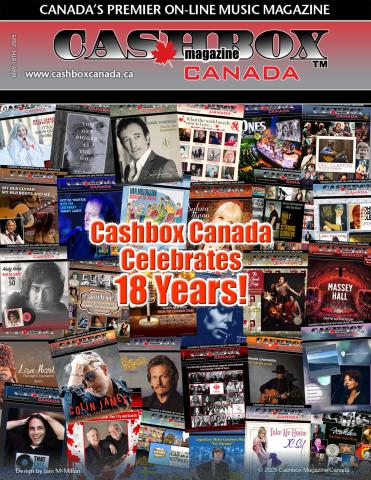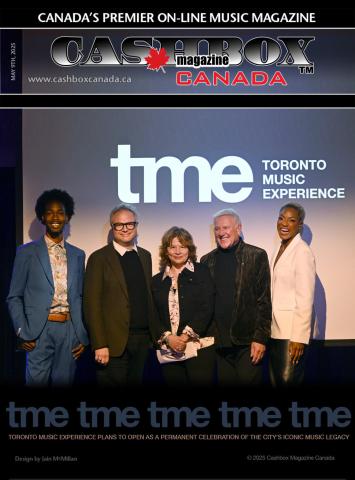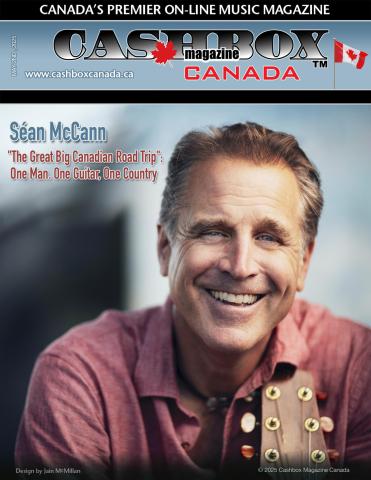I have just finished reading “You Get Bigger as you Go”, Bruce Cockburn’s Influence and Evolution by author M.D. Dunn.
What a wonderful rabbit hole to fall into! I As the reader, I was immersed for weeks in Bruce’s music, playing the tracks from all the albums that Dunn delves into, as I read the book. I followed the timeline along with Mark Dunn’s research and exploration of all Cockburn’s albums. This book explores the profound influence and remarkable evolution of Cockburn’s music. A renowned Canadian singer songwriter and guitarist, Cockburn has entertained and educated listeners for over five decades.
Speaking with Mark recently about the book, we discussed the fact that Bruce is like a war correspondent, a journalist observing through his lens of music the times we live in, complimented by the poetry of his complex guitar phrasing. Cockburn digs deep into the pathos of the song.
Mark reflected that: “Bruce is almost always the narrator in these songs, and they are not always about him, but they are always a reflection of his point of view.”
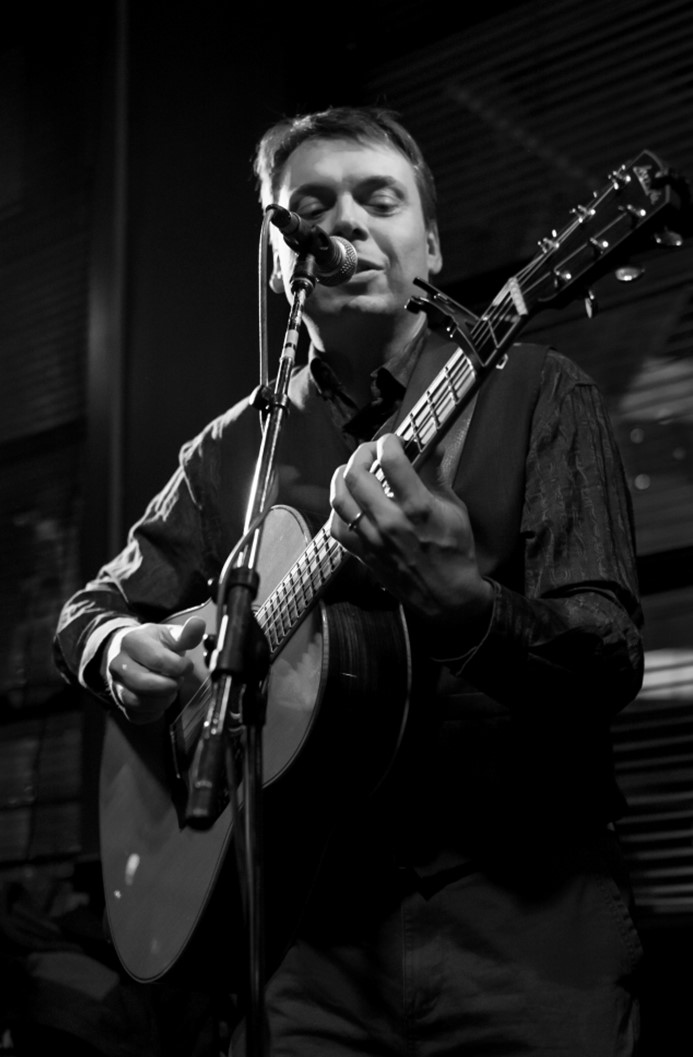
Author M.D. Dunn takes us on an obsessive and humorous quest to track Cockburn’s cultural footprint and reflects on his own early introduction to Bruce’s music and how writing the book became a 7-year quest of immersing himself in the complete catalogue and as Mark says, “There is not a bad album in the catalogue”. The book is interspersed with interviews with Bruce, and meetings and interviews with many of the key players, like the legendary Bernie Finkelstein, close friends, and colleagues of Bruce’s, to get a clear picture of his generosity of spirit, his spiritual journey, his activism, and his love of nature. Black and white photographs from the archivist Daniel Keebler help to illustrate the different life passages of Bruce at home, in the studio, and on the road.
We talked at length about the passage in the book where Mark describes that we all come to Bruce’s music at different times in our lives. For him it was a cassette tape that was unlabeled with no liner notes in a thrift shop when he was fourteen “Joy Will Find a Way” which affected him so profoundly. For me it was “Goin’ To the Country” released in 1970. And so, wherever you come to Cockburn’s music, that is THE album for them. As a Montrealer, I believed we always had the ‘cool’ music first in Canada. Bruce always included French Lyrics on his albums and in his songs, so he was played extensively in Montreal on CHOM FM, the station of global inclusivity and diversity at the time as well as CJFM, the softer rock station of the City.
During our lively conversation, the author and I delved into the place of Bruce’s activism and how much great courage and self-discipline it takes to walk that path and be committed. How in one passage in the book, Bruce wrestles with the thought that the last line of “If I had a Rocket Launcher”, could be seen as a call to violence. He had been in such rage and grief writing that song after witnessing the refugee camps that had been decimated, killing women and children in South America. Cockburn worried that the rage was palpable in that song. Bruce says in the book: “It is still painful to sing that song. I put myself where the song is. It is painful. I don’t like singing it.” The book really delves into the trajectory and platform of his activism and there are interviews with people who accompanied him to Guatemala and Nicaragua that illuminate his integrity and shyness around acclaim for his participation. What Cockburn writes is thoughtful and researched and chosen out of a deep expression of belief in the group he is representing and not for opportunistic reasons.
Following the journey of Bruce Cockburn’s spirituality is also a revelation in the book and now makes so much more sense to me considering the descriptions of the albums created the maturity developmental period in this book’s timeline. The music gives us clues as where Cockburn is on his faith journey. It is wonderful that M.D. Dunn extrapolates the world news as we explore Bruce’s discography. It makes so much sense to me through reading this book, how mature he was as a thinker and an artist for change.
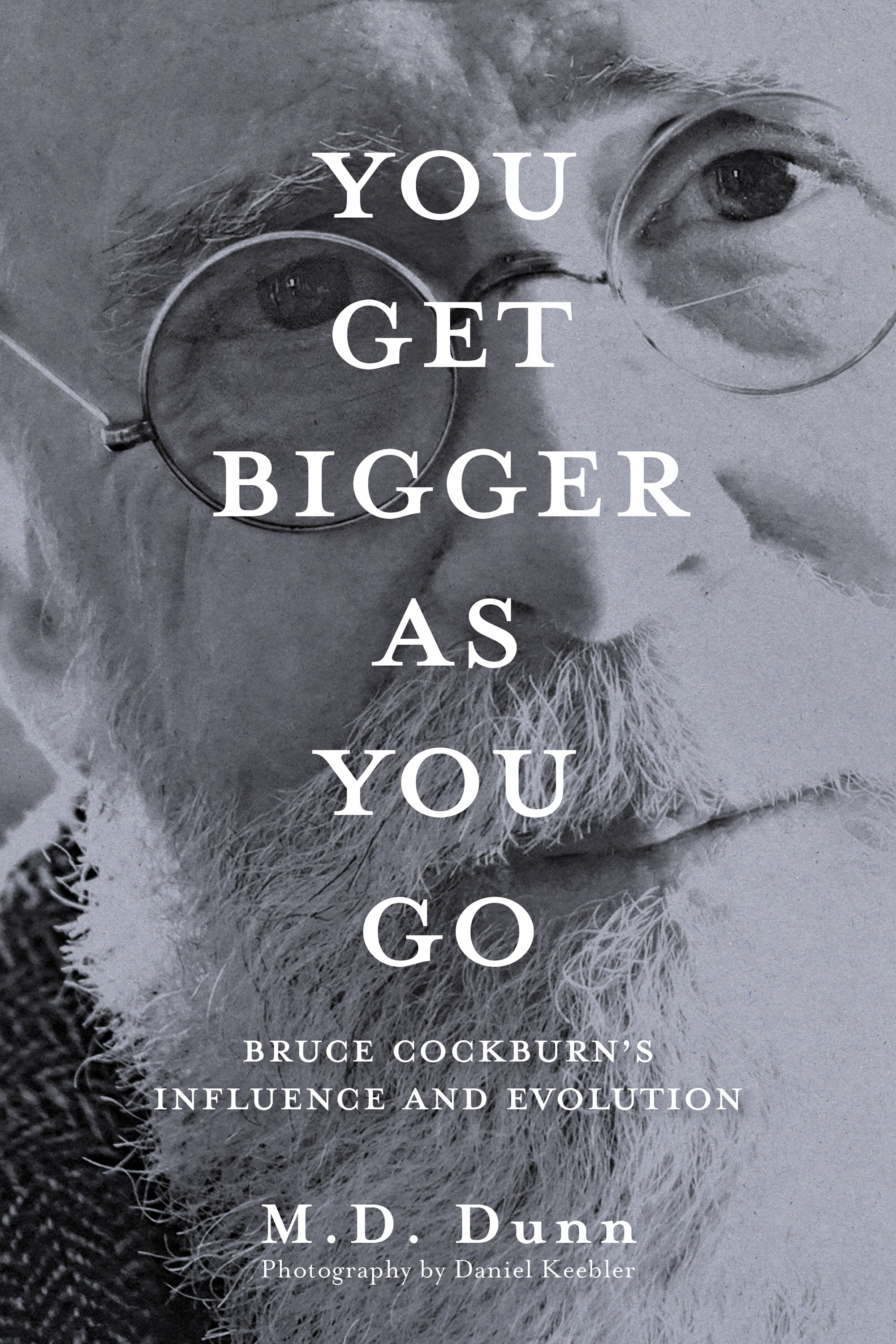 Mark and I spoke about the journeys we must all be on and that our choice of music is our companion, our guide, our Gandalf. This book is like that, it opens every moment for discussion and very beautifully speaks to the poetry of Cockburn’s lyrics, as we search our own journey on the timeline for similarities.
Mark and I spoke about the journeys we must all be on and that our choice of music is our companion, our guide, our Gandalf. This book is like that, it opens every moment for discussion and very beautifully speaks to the poetry of Cockburn’s lyrics, as we search our own journey on the timeline for similarities.
I especially like how the author timelines Cockburn’s quest for spirituality. We the reader have the opportunity through descriptions of different albums and interviews to immerse ourselves in Cockburn’s journey. Asked in 2021 his concept of God Bruce says “It’s tricky, I got into a sense of God, the cosmic-ness of God that I think about most often. it’s a little like pantheism. God is in everything. Nothing exists without god’s permission, would be a Christian way of saying it. Having set the universe in motion. It doesn’t mean that “he takes an interest in every single detail. If you can imagine a person. While there is this cosmic thing, there is also a presence in the heart (brings both hands to his chest) that’s inescapable for me. And I want to know more about it. I never feel I know enough about it, that I have a clear enough channel to it. I like the Kabbalist notion of “Ein Sof” which is “The Boundless. In other words, you can say anything you want about God, but you’re never going to cover it. And so, all the images in a way are suitable, but limited. And you must be aware of the limitations of that imagery.”
Dunn writes: Cockburn’s spirituality is often described as ‘bordering on the mystical’. He has read widely and with an open mind, drawing from Christian studies, the Kabbalah, the occult, and Buddhism, among other traditions, to form a faith system that seems fluid and ever evolving but still Christian. Suffice it to say that Cockburn believes in a personal savior that transcends all physical limitation. It’s The Boundless, as he says, Boundless without end.
In conclusion: I highly recommend this book for anyone who loves and lives for the back stories in Bruce Cockburn’s music, and for those who embrace our Canadian perspective. The book is so well written and researched that it was very hard not quote or wish to discourse on every topic. There was so much meaning and integrity of language throughout the whole tome.
M.D. Dunn (you can call him Mark) has written and performed music for more than thirty years and released nine albums as of 2023. A teacher and a poet, Dunn’s writing has been published in the Globe and Mail, the Literary Review of Canada. The Rumpus, Public works Magazine, Contemporary verse 2, and many other outlets. He lives in Sault Ste. Marie, Ontario, Canada, where he teaches writing at Sault College. Find him online at www.mddunn.com.
As the author says: “The book is not perfect, and there is much more work to be done with Bruce Cockburn’s music and its cultural presence. I hope that this small offering might continue and advance the discussion.”
Fermata Press is a micro press for quirky books about music, who are dedicated to giving readers insightful, engaging, and strange books. Contact @fermatapress.com www.fermatapress.com



